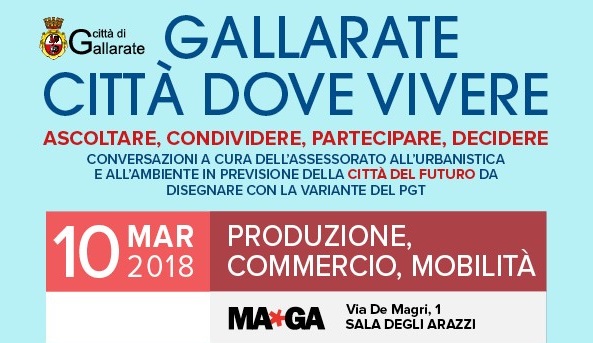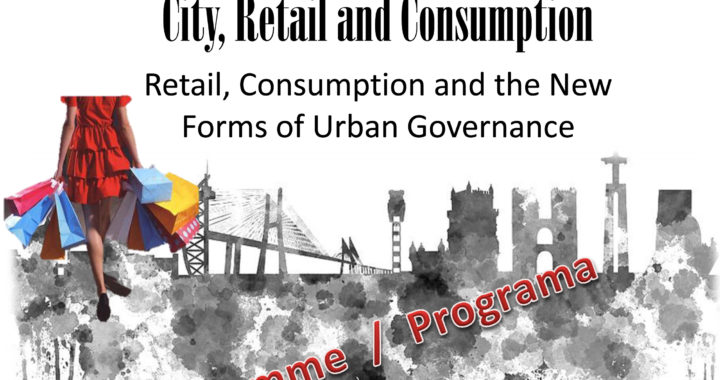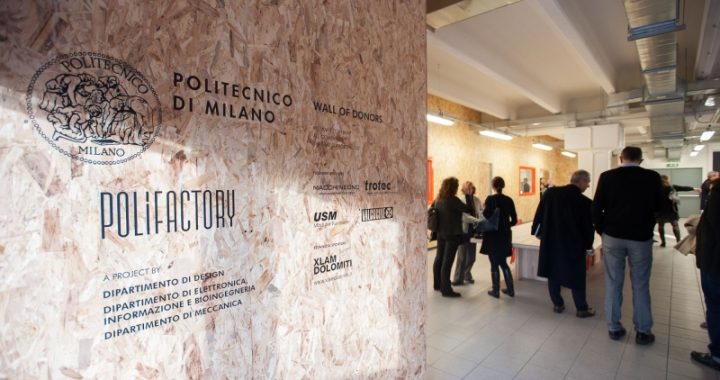Durante los próximos días 16 a 19 de octubre, en la ETS de Arquitectura, el miembro del IUU y profesor en el Politecnico di Milano Mario Paris impartirá el seminario de formación doctoral “Producir conocimiento espacial”, enmarcado en la oferta de actividades formativas de la Escuela de Doctorado de la Universidad de Valladolid y más específicamente en el Programa de Doctorado en Arquitectura. El seminario se orienta a ayudar a los doctorandos a enfocar la lectura del territorio y a integrarla en sus trabajos de investigación, tomando contacto con las metodologías y herramientas más recientes e innovadoras en el campo de la cartografía y el análisis del territorio.
Como actividad formativa de la Escuela de Doctorado, el seminario está abierto a la participación de cualquier doctorando interesado en el tema, aunque se orienta muy especialmente a quienes desarrollan investigaciones doctorales en las que el factor espacial/territorial es determinante, como es el caso del Doctorado en Arquitectura o el Doctorado en Patrimonio Cultural y Natural: Historia, arte y territorio, estando asimismo prevista la participación de los doctorandos del EJD urbanHIST.
El programa previsto, que se desarrollará en la ETS de Arquitectura, es el siguiente:
Lunes 16 de octubre (Sala de Juntas):
10h00-10h30: Presentación del seminario
10h30-12h00: Sesión teórica 1
Producir conocimiento espacial: definición de un campo de trabajo (objetivos y desafíos)
Análisis espacial avanzado: herramientas para entender cómo reaccionan los territorios a diferentes escalas.
12h00-12h30: Descanso
12h30-14h00: Sesión teórica 2
Hacia una lectura del territorio compartida: los VGI y la plataforma Open Street Map.
La cartografía como soporte: experiencias recientes de lectura del territorio al servicio de la investigación y de procesos de toma de decisiones.
14h00-14h30: Debate
Martes 17 de octubre (Sala de informática):
11h30-13h30: Workshop. WP1: Presentación y metodología
Miércoles 18 de octubre (Sala de informática):
11h30-13h30: Workshop. WP2: Práctica de campo (alrededor de la ETS de Arquitectura)
17h30-19h30: Workshop. WP3: Restitución y organización de datos
Jueves 19 de octubre (Sala de informática/Sala de juntas):
17h30-18h30: Workshop. WP4: Interpretación
18h30-19h30: Mesa redonda final para discusión de resultados
Os adjuntamos a continuación un texto de presentación del seminario:
La producción de conocimiento espacial como soporte a los estudios territoriales: objetivos, métodos y desafíos
En su relectura del trabajo de H. Lefebvre, E. W. Soja (1996; p.47) pone en evidencia la necesidad de trabajar el espacio desde una perspectiva que cruza diferentes disciplinas, para que salga de los compartimentos estancos a los que lo reducen los diferentes enfoques sectoriales. “El espacio” —en sus palabras— “es demasiado importante para que se ocupen de ello las disciplinas como la geografía, la arquitectura, los estudios urbanos, etc. de forma específica o, peor aún, que se quede como relleno o como un fondo para los historiadores, los sociólogos marxistas o los que se dedican a las ciencias sociales. La espacialidad de la vida humana (…) influencia cada disciplina y cada discurso.”
A lo largo de la última década, distintas ramas del conocimiento dentro de los estudios territoriales (geografía, nuevas tecnologías, economía, ciencias sociales, etc.) han investigado las oportunidades basadas en lecturas alternativas del espacio. Entre ellas, la producción de “spatial knowledge” (Limonta & Paris, 2017; Dovey & Ristic, 2017) se configura como el resultado de un conjunto de prácticas, desarrolladas según las aspiraciones de F. Jameson (1992) que aspiraba a la creación de una cartografía cognitiva con el objetivo de describir el territorio contemporáneo de una forma más útil y eficaz respecto a las técnicas tradicionales. Se trata de introducir en la investigación de los materiales y de las practicas urbanas un enfoque procesual (Kitchin & al., 2012; Kitchin & al., 2009), técnicas digitales y lecturas performativas (Perkins, 2009) aprovechando de metodologías consolidadas en otras disciplinas. El resultado es la producción de mapas, diagramas y esquemas diferentes, donde el espacio es representado a través de la recombinación de información sectorial, modelos estadísticos y datos geográficos (De las Rivas & al., 2014). Este soporte representa una base eficaz para detectar fenómenos, así como para descubrir potenciales y límites de un espacio y se puede aplicar a distintas investigaciones, adaptando los productos a las necesidades subjetivas. Al mismo tiempo el trabajo sobre la dimensión espacial de los fenómenos socioeconómicos, de las practicas del habitar contemporáneos, y el intento de representar de una forma objetiva y trasmisible los impactos que tienen en el territorio puede considerarse una herramienta para promover la colaboración interdiscpilinar entre programas. Se trata de un ejercicio útil para crear un terreno común para el debate, el proceso de individuación de problemas y de toma de decisiones que los doctorandos —cada uno enfocando los temas desde su perfil especifico— pueden aplicar dentro de los distintos programas doctorales involucrados (en arquitectura, historia del urbanismo y geografía). Los resultados de la aplicación de la metodología propuesta pueden servir para crear atlas relacionados con los trabajos de los estudiantes del tercer ciclo y definir también de forma visual el campo de acción de cada uno y del programa en su conjunto, incluso de todos ellos a la vez.
El objetivo de este taller es proporcionar a los alumnos: (i) conceptos acerca de la producción de conocimiento espacial y sobre cómo esta cartografía alternativa puede ser una herramienta de trabajo útil dentro de los estudios territoriales; (ii) una innovadora metodología para relacionar fenómenos socio-económicos y sus impactos en el territorio gracias a bases de datos abiertas (open data) y sistemas de información geográfica (SIG) open source; (iii) conocimientos prácticos acerca del análisis espacial avanzado (advanced spatial analysis) y de las oportunidades proporcionadas en su relación con los VGI (Volunteer Geographic Information) y, de forma especial, con la plataforma OpenStreetMap.
Todo ello pretende estimular a los estudiantes a introducir en sus respectivas investigaciones una cartografía diferente, más precisa y más orientada a la lectura del potencial y de los caracteres del lugar y de los efectos espaciales de las trasformaciones socioeconómicas y tecnológicas (análisis). Al mismo tiempo, estas herramientas son más eficaces a la hora de proporcionar lecturas que abren nuevos escenarios y, de una forma “transductiva” (Lefebvre, 1968), vinculan lo real y lo posible (síntesis), combinando escalas diferentes e incluyendo también la dimensión del tiempo y del futuro (proyecto), por lo que resultan adecuadas para complementar los trabajos de los alumnos en sus enfoques específicos.
Bibliografía
De las Rivas, J.L., Paris, M. y Jiménz, M. (2014) ‘Creating figures: why re-imagining urban structure supports a regenerative urban mode’ en Architecture MPS – Online publication.
Dovey, K., Ristic, M. (2017) ‘Mapping urban assemblages: the production of spatial knowledge’ en Journal of Urbanism: International Research on Placemaking and Urban Sustainability, n. 10(1), pp. 15-28.
Jameson, F. (1992) The geopolitical aesthetic: cinema and space in the world system. Bloomington (IN, USA): Indiana University Press.
Kitchin, R., Perkins, C. y Dodge, M. (2012) ‘Unfolding mapping practices: a new epistemology for cartography’, en Transactions of the Institute of British Geographers, 1-17.
Kitchin, R., Perkins, C. y Dodge, M. (2009) ‘Thinking about maps’ en: Dodge, M., Kitchin, R. y Perkins, C., eds., (2009) Rethinking maps. Oxton (UK): Routledge.
Lefebvre, H. (1968) Le droit à la ville. Paris: Anthropos.
Limonta, G., Paris, M. (2017) ‘Riconoscere e monitorare la potenziale fragilità dei sistemi commerciali urbani: una proposta per la Regione Lombardia’ en: AA.VV., Atti della XIX Conferenza Nazionale SIU “Cambiamenti. Responsabilità e strumenti per l’urbanistica al servizio del paese”. Milano-Roma (I), Planum Publisher.
Pavia, R. (2002) Babele: la città della dispersione. Roma: Meltemi.
Perkins, C. (2009) ‘Performative and Embodied Mapping’ en: Kitchin, R., Thrift, N. (2009) International Encyclopedia of Human Geography. Amsterdam (NL): Elsevier.
Secchi, B. (1994) ‘Figure del rinnovo urbano’ en Casabella n. 614, pp. 16-17.
Soja, E.W. (1996) The third space: journeys to L.A. and other real-and imaginated places. Oxford (UK): Blackwell.
Per maggiori informazioni riguardo all’evento, si consiglia la visita al sito ufficiale del seminario, al seguente link.






